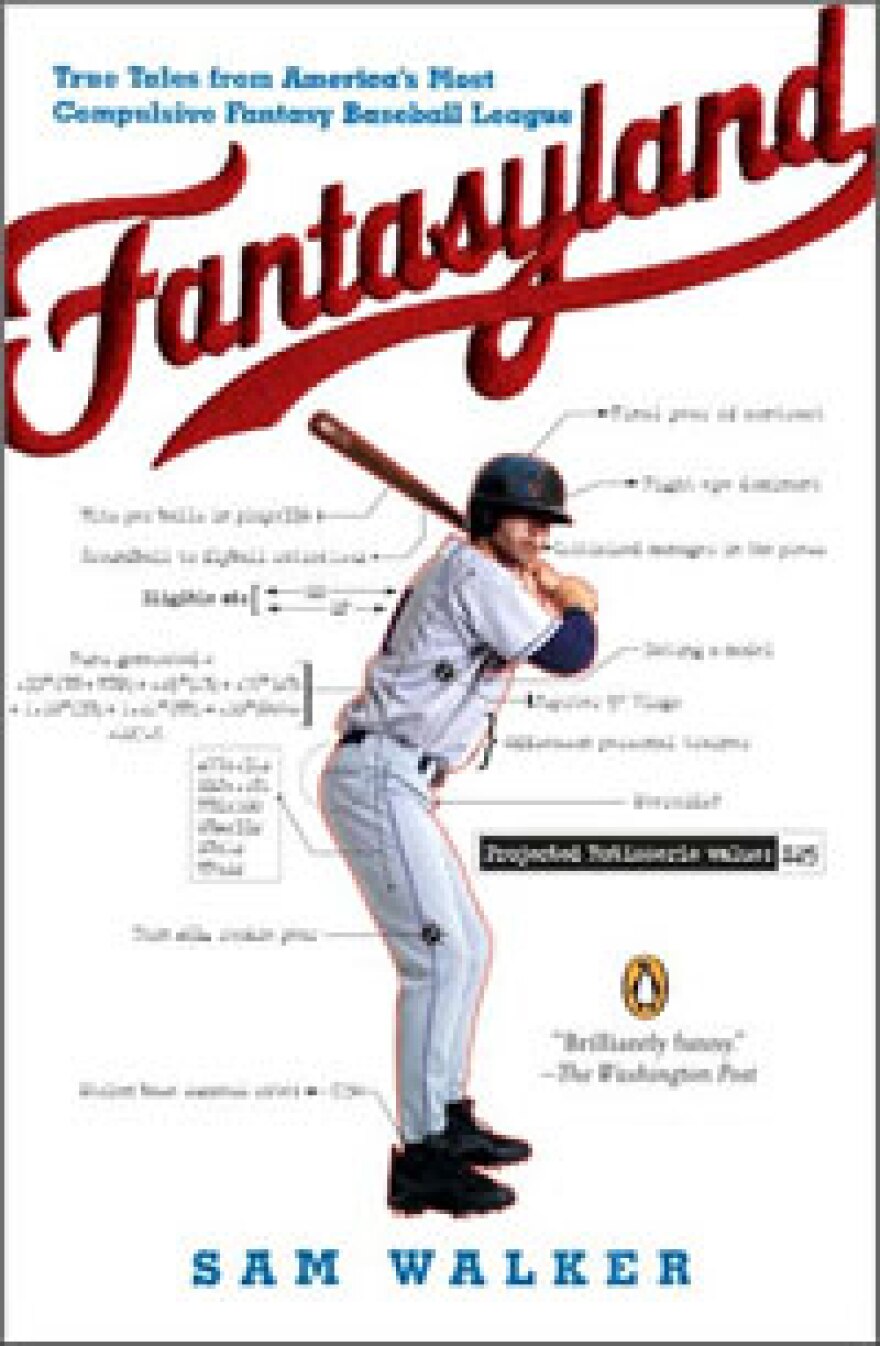In bed, when my eyes begin to droop over a novel or nonfiction narrative, I reach for a book I know will give me private pleasure. The cover is soft, well-thumbed and beckons readers like me, called "fantasy players." My pulse races as I dive in and read: "Rocky Cherry, a hard thrower with control issues, was taken from Baltimore in the Rule 5 draft by the Mets."
My guilty pleasure is reading fantasy baseball books. They have no plot, no dialogue, no women. On some pages, there are only names and numbers. The prose has all the pace and transparency of an IRS form: "A batter with an eye ratio over 1.5 has a 4 percent chance of hitting under .250 over 500 at bats."
Why do I cherish these books? Because, like millions of Americans, I manage a make-believe team. At the start of the baseball season, 12 "managers" in my fantasy league assemble teams by choosing real players from major league squads. If I land Derek Jeter, each homer he hits for the Yankees is a homer for my team, too. At season's end, the team with the best overall statistics is the winner.
This isn't the kind of fantasy you share on a first date, or at most jobs. It's a guilty pleasure for closet geeks. That's where the books come in. They're written by "experts" who sift endless data to predict the future play of hitters and pitchers. Imagine the Kabbalah, for sports nuts: a mix of prophecy and numerology that promises to unlock the secrets of the baseball universe.
I love baseball — the real game — but most writing about it is drowned in nostalgia. Fantasy books are different. They distill the game to its purest elements — hit, pitch, run — and are brutal in their lack of sentiment. Each player's stats come with a blunt summary. An aging but beloved slugger merits two lines: "Stick a fork in him. He's done." That scrappy shortstop your 10-year-old adores? "No power. No speed. Avoid."
Fantasy books also crunch the numbers on existential themes. What's a batter's peak age, the perfect mix of youth and experience? Twenty-seven. Can a pitcher still throw heat in his 40s? Almost never.
I read these data sets and wonder: What's the peak age for a writer? If there was a game called Fantasy Authors, what would be the book on me? "A money loser who no longer merits a paycheck. Avoid."
The best book on fantasy isn't a players' guide, but a lunatic adventure. It's Fantasyland, by Sam Walker, a sportswriter who has never tried fantasy, but joins its toughest league. This is, he writes, "like trying to learn the cello by joining the London Philharmonic."
Walker stops at nothing to win. He hires a NASA mathematician to analyze ballplayers rather than astronauts. He stalks major leaguers at spring training. He even consults a baseball astrologer. By the end of his rookie season, he has blown $46,000, and his marriage, health and sanity have all suffered.
Which is why I prefer to manage my team in bed, with a pile of books that cost $50 total. In the world of fantasy baseball, even a loser can triumph.
Copyright 2023 NPR. To see more, visit https://www.npr.org.



